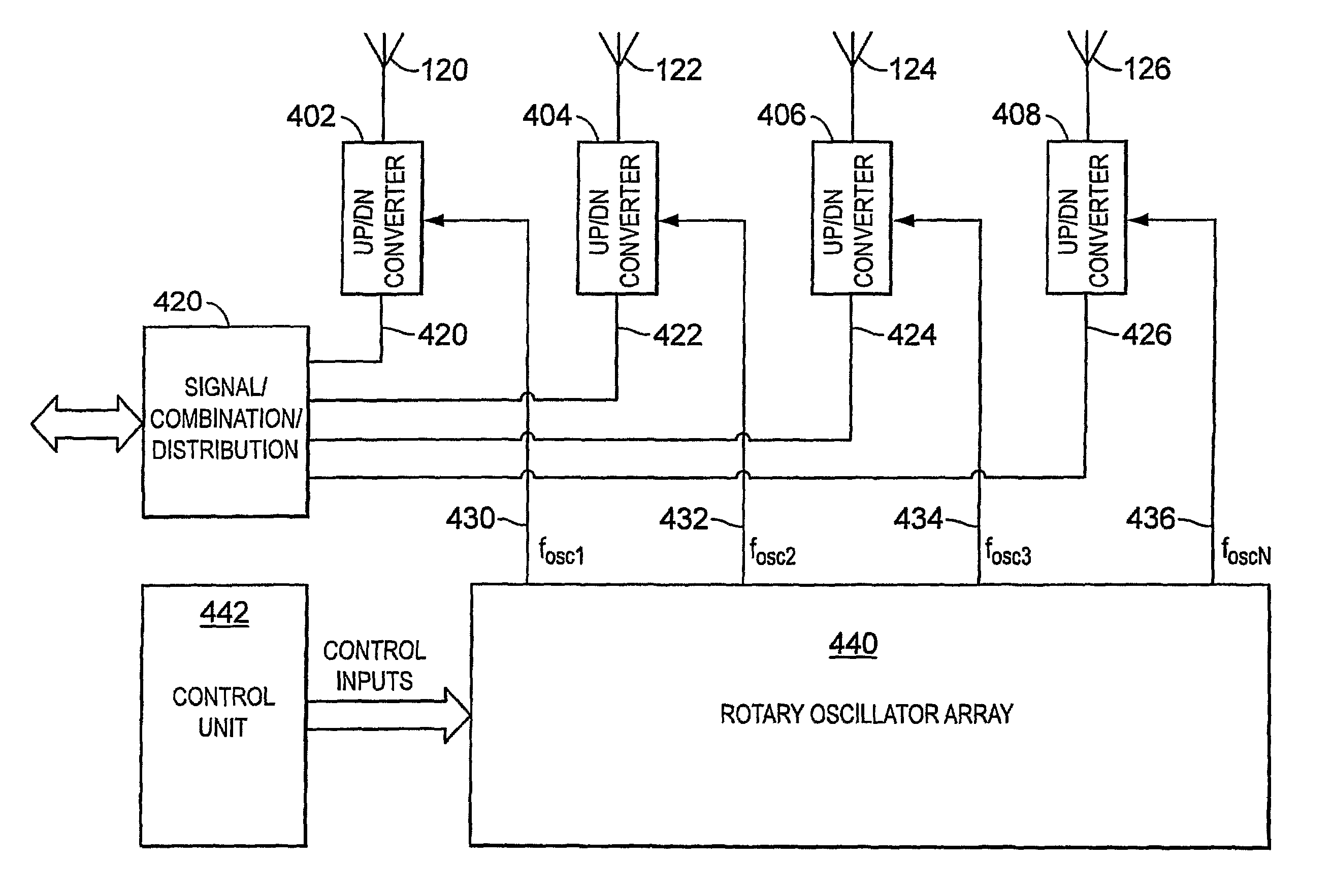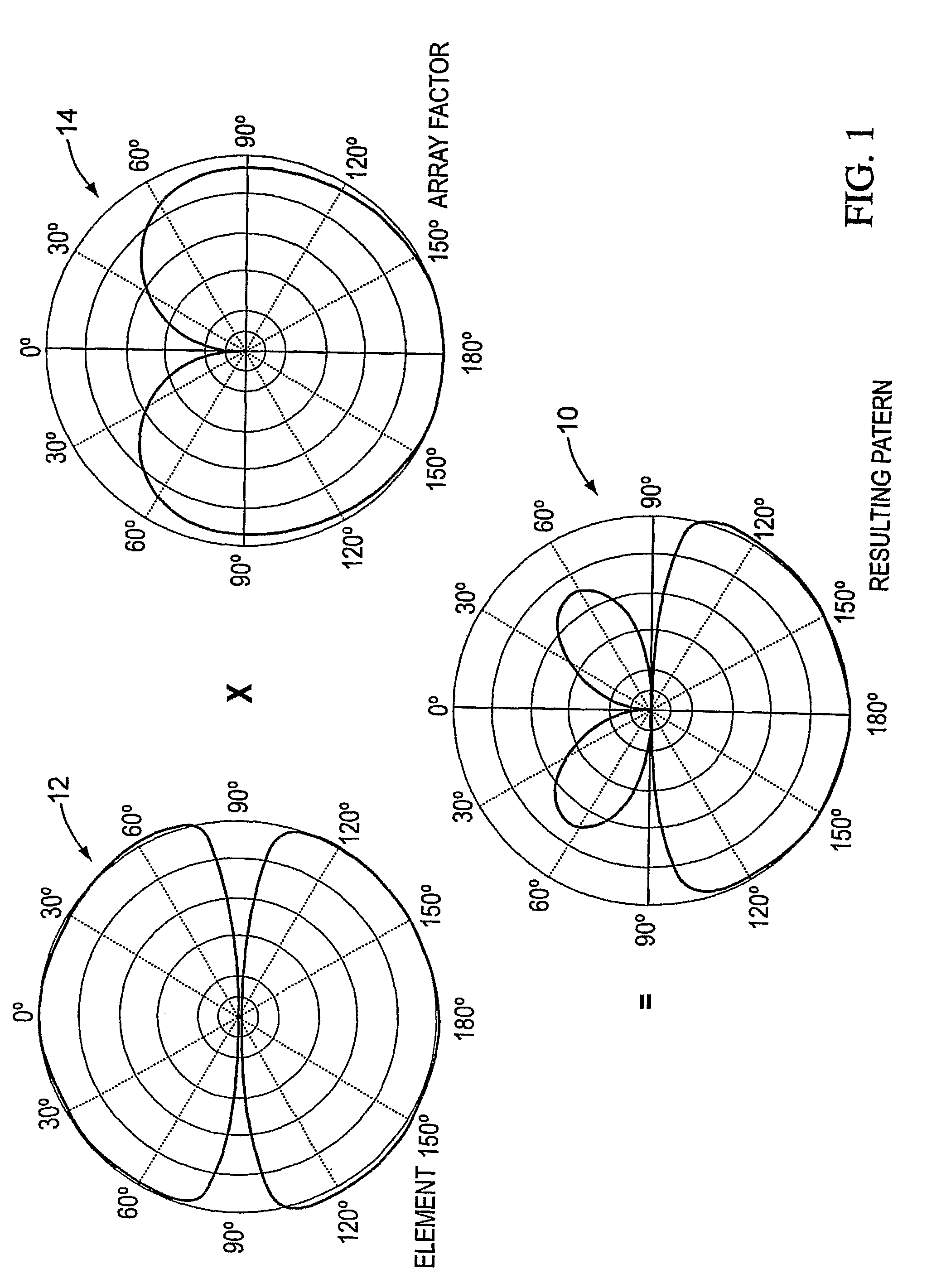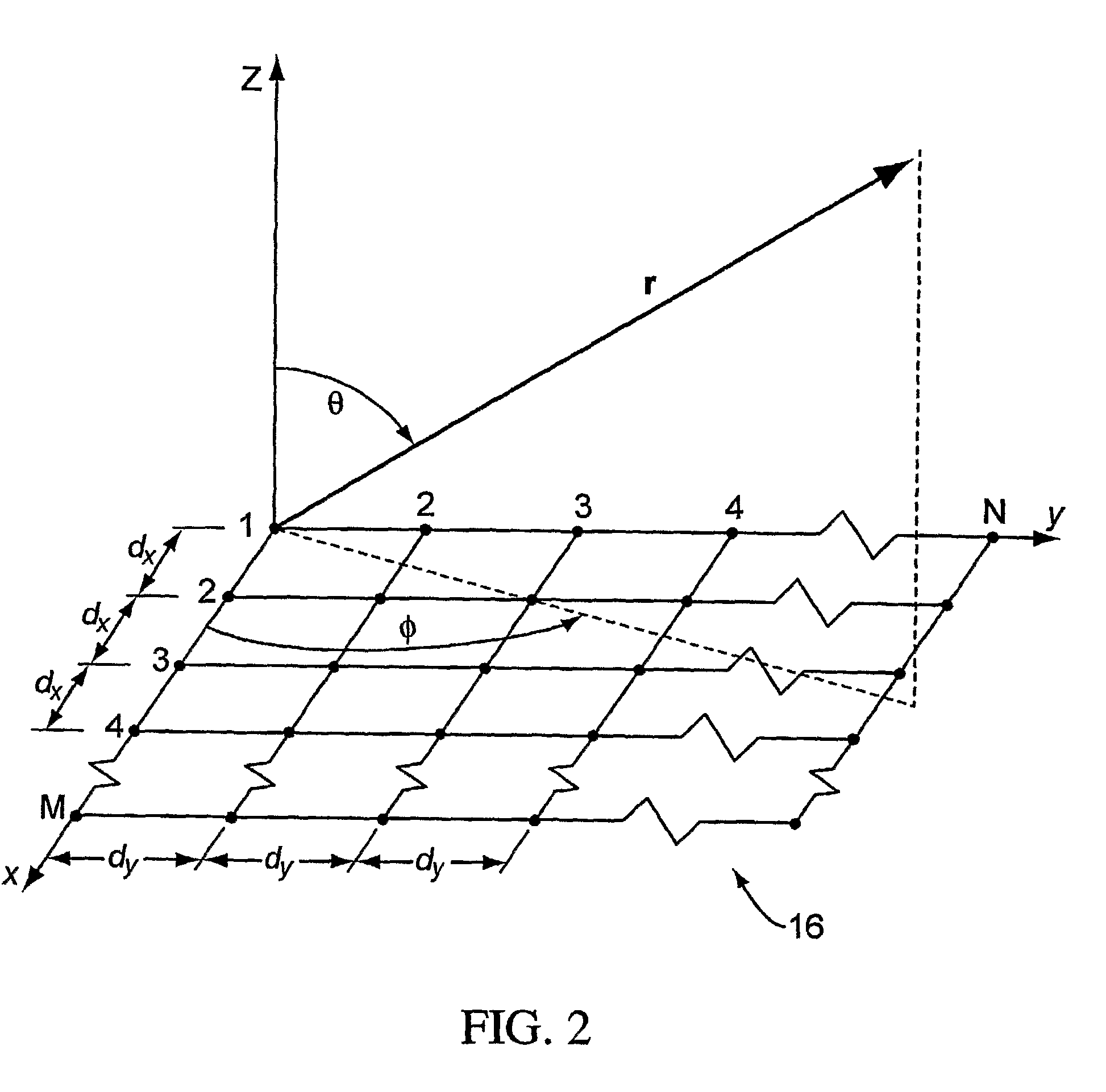True time delay phase array radar using rotary clocks and electronic delay lines
a phase array radar and rotary clock technology, applied in the field of truetime broadband phase array antenna systems, can solve the problems of complex beam pattern formation, limited array usability in some applications, and limited constructive interference pattern adjustment through the use of element distances, etc., to achieve the effect of easy and quick movemen
- Summary
- Abstract
- Description
- Claims
- Application Information
AI Technical Summary
Benefits of technology
Problems solved by technology
Method used
Image
Examples
example timing
of Phase Array System
[0125]FIG. 19 shows an exploded circuit diagram of three antenna switches chosen from an X / Y array and is shown flat as one circuit. (In practice, there many individual chips physically separated and the diagram would be hierarchical). The Receive path is shown but the TX is similar in principle with all the signal directions reversed (through muxing).
[0126]FIG. 20 depicts the topology of the example array of 16 elements shown with a single-pulse radar echo arriving from north-east of the array. Antenna integrated circuit A receives the signal first, element B receives the signal a short time later. Element P receives the pulse at an even later time.
[0127]FIG. 19 has a timing diagram showing the phase-select settings for the S / H and the CCD tap settings that achieve the correct true-time power combination. A combination of S / H selectable phase and a pipelined CCD storage element 570a,b,c with selectable taps gives the equivalent of a programmable delay line for ...
PUM
 Login to View More
Login to View More Abstract
Description
Claims
Application Information
 Login to View More
Login to View More - R&D
- Intellectual Property
- Life Sciences
- Materials
- Tech Scout
- Unparalleled Data Quality
- Higher Quality Content
- 60% Fewer Hallucinations
Browse by: Latest US Patents, China's latest patents, Technical Efficacy Thesaurus, Application Domain, Technology Topic, Popular Technical Reports.
© 2025 PatSnap. All rights reserved.Legal|Privacy policy|Modern Slavery Act Transparency Statement|Sitemap|About US| Contact US: help@patsnap.com



